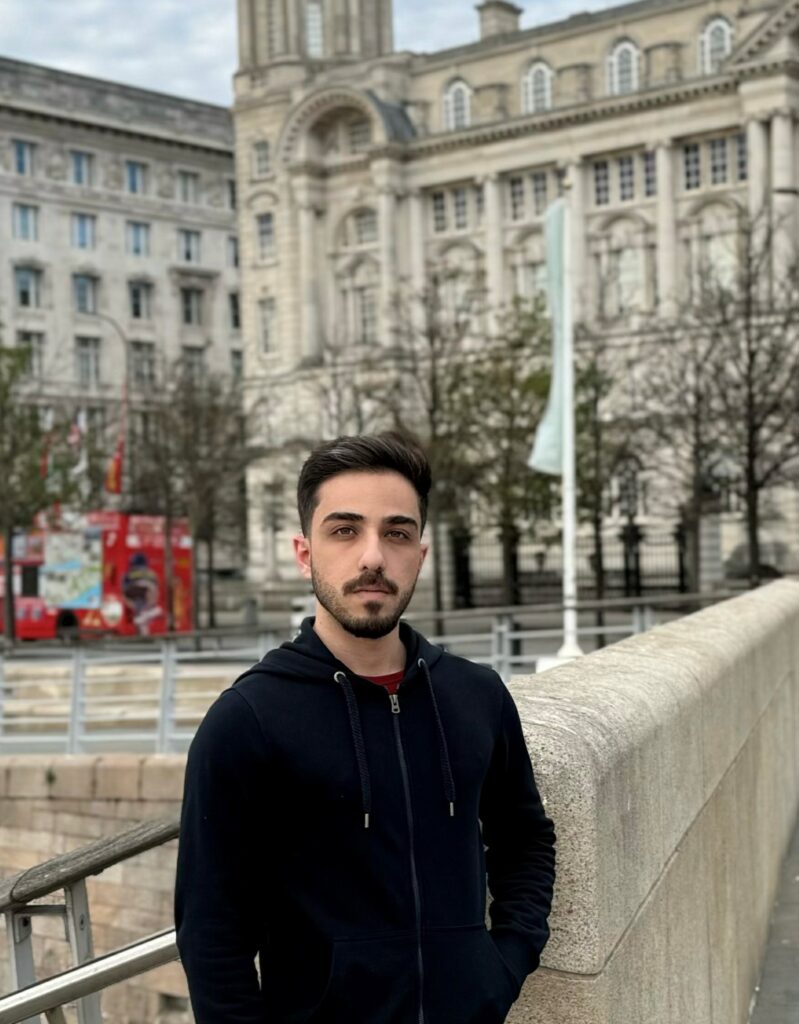
Hi everyone! I’m Mohammadreza Rabinezhad, originally from Iran. I hold a B.Sc. in Civil Engineering from Amirkabir University of Technology and an M.Sc. in Geotechnical Engineering from Sharif University of Technology—widely recognized as Iran’s top technical university.
My academic background has centred around the numerical modelling of geotechnical problems. In my master’s thesis, I investigated the behaviour of cemented and uncemented coarse-grained soils under triaxial loading using the Discrete Element Method (DEM). During my master’s studies , I gained hands-on experience with advanced geomechanical modelling tools such as PFC, Plaxis, Abaqus, COMSOL, and Python programming.
Now, I’m excited to begin a new chapter as a Doctoral Researcher at the University of Liverpool, as part of the POSEIDON MSCA Doctoral Network.
My PhD project is titled “Dynamic Modelling of Submarine Landslides and Induced Tsunami Propagation.”
This research aims to simulate the full sequence of submarine slope failure events—from the initial triggering of the landslide to the resulting tsunami wave generation and propagation. These hazards pose major threats to coastal zones and offshore infrastructure.
To accurately capture the complex behaviour of soil-fluid interaction during these events, I use the Particle Finite Element Method (PFEM)—a powerful computational technique that combines the flexibility of particle methods with the robustness of finite element formulations. This allows for precise modelling of large deformations, free-surface flows, and multiphase interactions typical of submarine landslides.
The ultimate goal is to improve the predictive modelling of landslide dynamics and tsunami impacts, contributing to safer coastal engineering and risk reduction strategies.
POSEIDON brings together everything I was looking for in a PhD: meaningful scientific challenges, international collaboration, and the opportunity to work at the intersection of geotechnics, marine hazards, and numerical modelling.
With a deep interest in natural hazards and computational geomechanics, I was drawn to POSEIDON’s focus on offshore geohazards and its strong research network across Europe. Joining the project has already allowed me to connect with researchers and fellow PhD students in the UK, Germany, the Netherlands, and Norway—building both friendships and scientific collaborations.
Through shared training, secondments, and interdisciplinary work, POSEIDON offers far more than a traditional PhD. It’s a unique opportunity to grow not only as a researcher, but also as a global contributor to sustainable offshore development and climate resilience.
I’m proud to be part of this journey.

